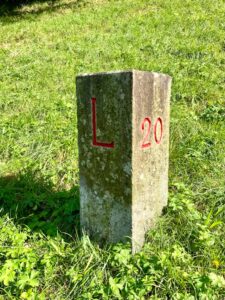Removing Ancient Landmarks
by Terry Wane Benton
"Do not remove the ancient landmark which your fathers have set" (Proverbs 22:28 NKJV).
"Bring in no new dogmas, nor rites, nor ceremonies, into religion, or the worship of God, that are not clearly laid down in the sacred writings. 'Stand in the way; and see, and ask for the old paths, which is the good way, and walk therein; and ye shall find rest for your souls' (Jeremiah 6:16)." [Adam Clarke].
The Jews sought the new and novel because they grew tired of the traditional. There should be great care in rejecting the ancient landmarks of our fathers. Perhaps they fought battles that led to the establishment of the traditions we observe today. Perhaps the order they set was better than the disorder that they had battled before. Change just for the sake of change may not be so well thought out.

The Corinthians altered the Lord’s Supper from the original landmark established by Jesus and transformed it into a common meal. Paul pointed them back to restore the original landmark (I Corinthians 11:17ff). Some today want to change the ancient landmark again. Don’t allow it!
The Spirit set the landmark of when and how to receive the remission of sins in Acts 2:38. Some brethren today want to move the ancient landmark to some mysterious moment just before repentance and baptism in the name of Jesus. We cannot afford to allow people to remove the ancient landmark.
There are ancient landmarks that identify the New Testament church, which were established by the Spirit-guided apostles and prophets of the New Testament (Ephesians 2:19f). However, some have altered these identifying features and substituted the wisdom and will of men. This is why the Lord warned that calling Him “Lord, Lord” would not be the measure of acceptance with God (Matthew 7:21f). The New Testament sets the ancient landmarks right where God wants them to be. We must be careful not to move them or to lend encouragement to others who are moving them.
